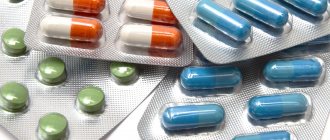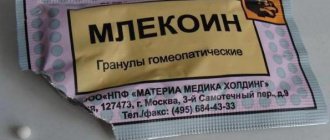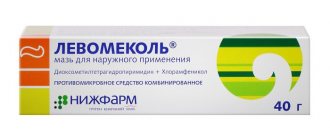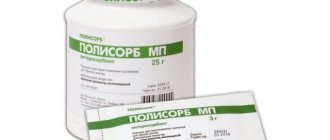VK
Buffer
During the period of breastfeeding, it is especially difficult for mothers to choose medications that would be safe for the baby. But what if a woman needs to choose a remedy to improve digestion? One of the popular drugs is pancreatin. What does this medicine consist of, in what cases should it be used, and how will taking it affect your health and the health of your baby? Let's talk about everything in order.
Composition and mechanism of action of the drug
Pancreatin is the name given to pancreatic juice, which helps break down protein and fatty foods. If carbohydrates can be absorbed on their own, then pancreatin is simply necessary for the breakdown of fats in the digestive tract.
The modern drug "Pancreatin" is manufactured using enzymes obtained from the pancreas of cattle and pigs. The product must be used by those people whose pancreas does not produce the required amount of its own enzymes. Once in the duodenum, pancreatin speeds up the process of digesting food and helps the body better absorb beneficial microelements.
The drug "Pancreatin" is covered with a special coating that protects the active substance in tablets or capsules from dissolution in the stomach when exposed to hydrochloric acid. Due to this, pancreatin enzymes begin to act only in the duodenum, with maximum activity – half an hour after taking the medicine.
Effect of the drug
Pancreatin contains enzymes that the pancreas usually produces and are capable of not only breaking down proteins and fats, but also normalizing digestive processes.
The medicine is produced in the form of tablets (capsules) coated with a coating that protects the active substances as the drug passes through the stomach. In this case, the opening of the capsule and the release of the necessary enzymes occurs in the intestine, in its thin section, and within half an hour the medicine dissolves and begins to act.
The drug affects the body as follows:
- accelerates the process of breakdown of proteins and fats;
- normalizes the activity of the gastrointestinal tract;
- eliminates pain;
- promotes food digestion;
- increases the absorption of nutrients.
At the legislative level, Pancreatin is called a vital drug.
Indications for use
What problems with the digestive system will help taking pancreatin? The drug is effective if the following diseases are established:
- chronic inflammatory processes in the stomach, liver or gall bladder;
- conditions after irradiation of the digestive organs, which are accompanied by increased
- gas or diarrhea;
- chronic pancreatitis;
- conditions after surgical removal of part of the stomach or pancreas.
In addition, pancreatin is taken by those whose gastrointestinal tract is functioning normally in the following situations:
- in case of dietary errors (for example, eating large amounts of fatty foods);
- when leading a sedentary lifestyle;
- with disorders of chewing function;
- in preparation for an x-ray or ultrasound examination of the abdominal organs.
The duration of treatment can vary from single doses to several months, depending on the reason for taking the drug.
Prescription of the medication
The drug stimulates the digestive processes, for this reason it is prescribed for various disorders, due to poor nutrition, certain diseases or conditions:
- Inflammation of the pancreas with a chronic course.
- After surgery to remove the pancreas.
- Cystic fibrosis (hereditary systemic organ damage).
- Dyspeptic disorders (nausea, vomiting, bloating, stool disorders, abdominal cramps, etc.).
- Diarrhea of infectious origin.
- After surgery to remove part of the stomach, intestines or a complete organ.
- Recovery after radiation therapy.
- Disease of the gallbladder or its duct.
Long-term therapy is needed for chronic enzyme deficiency. As a rule, such pathologies are associated with diseases of the pancreas. In such situations, replacement treatment is carried out according to the doctor’s indications.
Tablets are used by patients who do not have problems with the digestive tract in the following cases:
- A large amount of fatty foods in the diet.
- Passive lifestyle.
- Chewing dysfunction.
- Preparation for radiography or ultrasound of the abdominal organs.
The duration of the therapeutic course depends on the patient’s age and symptoms. This can be a one-time appointment or treatment over several months.
Pancreatin during lactation
The safety of the drug during breastfeeding has not yet been fully studied, because clinical trials have not been conducted among nursing mothers. Your doctor will tell you whether you should take Pancreatin. However, lactation consultants are of the opinion that nursing mothers can use the drug, but it is better to adhere to the following recommendations:
- It is better to take the medicine immediately after finishing feeding the baby.
- Making an independent decision about taking medication is allowed only when a one-time need arises. In other cases, the course of treatment is determined by the doctor.
- Monitor the baby's condition. If you notice a negative reaction, it is better to stop the drug and consult your pediatrician.
You can buy Pancreatin at a reasonable price here!
Follow the rules of healthy eating. During the treatment period (especially if you have pancreatitis), you need to follow a special diet:
- It is better to cook food by steaming;
- avoid hot and cold dishes, food should be warm;
- you need to eat small portions, but often enough - 5-6 times a day;
- it is advisable to grind solid foods or choose semi-liquid dishes;
- You need to drink enough liquid; rosehip decoction or weak tea is especially recommended.
Pancreatin should be taken during meals with water. After this, do not rush to lie down on the sofa. The tablet may begin to dissolve in the esophagus and not reach the duodenum, and then there will be no effect from taking it.
Alternative Medicines and Therapies
A nursing mother should pay attention to drugs that can replace Pancreatin:

These drugs are also based on enzymes; they normalize digestion in case of enzyme deficiency. However, the cost of Pancreatin is lower than that of its analogues, and their therapeutic effect is practically no different.
You can normalize digestion using safe methods:
- Eat spicy, salty and fatty foods as little as possible.
- Drink at least 1.5 liters of purified water.
- Take daily walks outside for at least 4 hours.
- Eat natural yoghurts and other low-fat fermented milk products.
- Drink a decoction of flax fruits.
- Before breakfast, eat 25 g of crushed milk thistle seeds.
By following these rules, you can improve your digestion and metabolism. If your condition does not improve, then consultation with a gastroenterologist is necessary.
Thus, Pancreatin during breastfeeding is allowed to be taken during lactation after doctor's approval. In this case, the patient must follow the therapy regimen determined by the doctor. During the treatment period, it is recommended to follow a diet and lead a healthy lifestyle.

A nursing mother often faces the problem of indigestion. This may be due to enzyme deficiency or chronic pancreatitis. Therefore, the question of whether Pancreatin can be used during breastfeeding arises quite often.
Side effects
Although side effects during treatment with pancreatin are quite rare (less than 1% of cases), it is better to familiarize yourself with the possible consequences in advance.
From the digestive system, you may experience: nausea, vomiting, constipation or diarrhea, discomfort in the abdomen. In some cases, allergic reactions may occur in the form of skin rashes. Due to long-term use of the drug in large doses, hyperuricosuria can develop, a type of pathology in which uric acid urates accumulate and kidney stones form.
It is important to remember that a large number of enzymes coming from outside can provoke a cessation of the production of one’s own enzymes. Therefore, you should not overuse pancreatin, otherwise the body will wean itself from working independently.
Side effects and contraindications
Adverse reactions when taking Pancreatin [3]:
- a violation of the immune system in the form of an allergic reaction (rash, urticaria, bronchospasm, shortness of breath, lacrimation);
- violation of the evacuation function of the intestines (constipation or diarrhea);
- dyspepsia;
- nausea;
- increased uric acid levels in the blood;
- hyperuricemia.
Pancreatin is prohibited for use when [2]:
- hypersensitivity to the components included in the drug;
- acute pancreatitis;
- exacerbation of chronic pancreatitis;
- lactose intolerance;
- cystic fibrosis.
Interaction with other drugs
Pancreatin, with long-term use, reduces the degree of iron absorption in the intestine, which can result in anemia. If you experience symptoms such as weakness in the body, constant fatigue, pale skin, cracked feet, it is recommended to stop taking pancreatin or ensure additional intake of iron in the body by consuming iron-containing products.
If you take the drug simultaneously with antacids containing calcium and magnesium, its effectiveness is reduced. In this case, the doctor may advise increasing the dose of pancreatin.
Is it possible while breastfeeding?
It is still unclear whether pancreatin is safe for breastfeeding, since no clinical trials have been conducted among women who are breastfeeding. You should clarify this issue with your doctor. But breastfeeding experts believe that young mothers can still use this remedy if necessary, they just need to follow some tips:
- You should take the medicine after you have finished feeding your baby;
- If you want to start using a medicine without a doctor’s recommendation, you can do this only once. If we talk about the course of treatment, it is determined by the doctor.
- It is necessary to regularly check how the child reacts. If you see that your baby has a bad reaction, you will need to stop using the product.
- Eat only healthy foods.
And also stick to the following diet:
- Cook food in steamers;
- Eat warm foods (not cold or hot);
- You should eat several times a day in small portions;
- Liquid meals should also be included in the diet;
- You should drink plenty of water or tea.
The product should be taken during meals and washed down with plenty of water.
Effect of the medicine on the child
The baby’s body is quite susceptible, so you will need to carefully monitor the child’s condition in order to identify various adverse reactions in time.
In the case of the use of small doses of Pancreatin during lactation, the baby usually did not experience the development of negative manifestations. But quite rarely, intestinal dysfunction and increased gas formation can be recorded. If any unpleasant symptoms occur, you should immediately stop taking the medication.
Side effects
The development of adverse symptoms while taking Pancreatin is extremely rare; it is worth familiarizing yourself with possible reactions in advance.
Possible negative manifestations from the gastrointestinal tract: severe nausea, vomiting, constipation or diarrhea, a feeling of discomfort in the abdominal area. Also, when breastfeeding, allergic manifestations (rash on the skin) may occur. With prolonged use of the drug in high doses, hyperuricosuria may develop.
It should be noted that when a large number of enzymes enter the body, inhibition of the production of its own is observed. For this reason, it is not recommended to drink pancreatin for a long time. Usually the medicine is prescribed for short-term use, so you should not violate the regimen recommended by your doctor.











